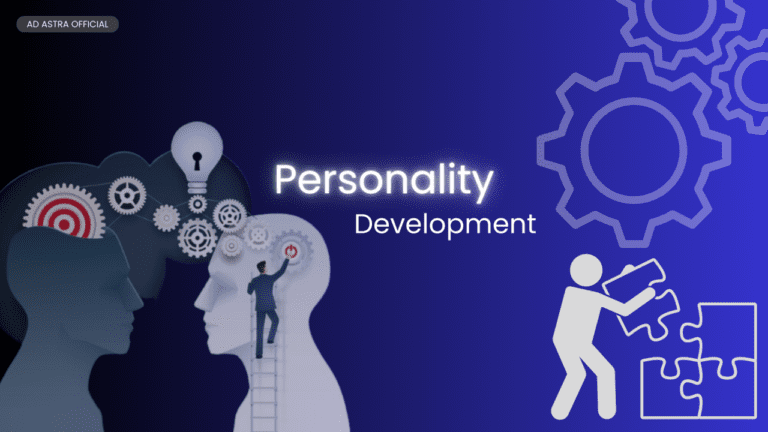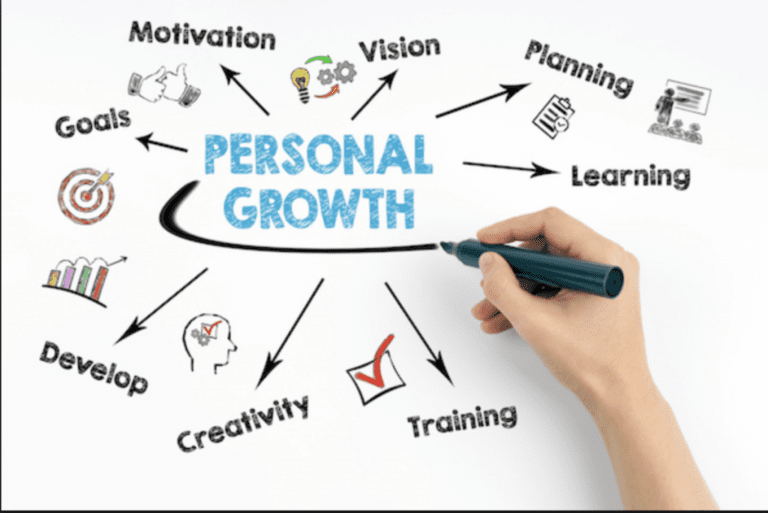Introduction

In an increasingly competitive, interconnected global workplace, merely possessing technical skills is not enough to get through and make it. Remote work, international collaborations, and digital communication have underscored an urgent requirement for professionals with soft skills. Employers now weigh communication, collaboration, and leadership skills alongside specific technical skills from any field of work. The essential soft skills considered in this regard include interpersonal communication, emotional intelligence, and confidence, global success through language and personality
English, however, is still considered first among them as a key to global opportunities. Being the most widely spoken language for business, English allows one to establish relations with clients, colleagues, and leaders worldwide. Together with a strong personality displaying confidence, empathy, and adaptability, it will assist a candidate in making a solid and lasting impression on others. In fact, these elements together develop a very strong presence, which can open doors for a candidate regardless of degrees. Also, without good communication and personal skills, an executive cannot support his team or represent the organization.
1. English Fluency: The First Step to Global Confidence
English fluency is often regarded as the very first step, or rather a more essential one, toward building confidence worldwide in the interconnected world of professionals. English is the language that connects various industries and nations in the fields of business, science, and technology. Whenever one is engaged in international meetings, writing an email, or setting his/her ideas into a presentation, fluency ensures that they have conveyed the message clearly, confidently, and impactfully. A language builds trust and ensures better understanding—these two are the very basis of any transnational collaboration.
In contrast, professionals who are fluent English speakers may partake without even a moment’s hesitation in foreign-based activities, global seminars, or working alongside international clients. Fluency helps in eliminating self-doubt and fosters eloquence, whereas credibility is greatly affected.English fluency significantly improves employability, particularly in interviews conducted by companies that recognize communication skills just as much as technical knowledge. But it is not merely about grammar and vocabulary; true fluency means hearing actively, reacting correctly, and interpreting cultural cues in conversation.
2. Common Challenges in Language Learning
Learning a new language, especially English, has its challenges, with some typical obstacles being fear of public speaking, lesser vocabulary, and grammar problems. Learners’ reluctance to speak is because they fear making errors and being judged for those errors. That slants their development to some extent. Another major obstacle is vocabulary. As a contender who tumbles into strangeness, I feel that without any solid base of vocabulary, it is difficult to come across with any articulate, confident sentence. Grammar is another source of worry, especially with tenses and sentence construction, often causing learners to doubt themselves. Common as they may be, these challenges can indeed be managed through constant learning and creative practice.
Daily habits are apt to overcome such barriers. Begin with listening: Watch English movies, listen to English podcasts, and even follow the English news channel. It fine-tunes your comprehension ability, simultaneously acquainting you with acceptable pronunciation and natural flow. Reading books, articles, or blogs in English enriches vocabulary while cementing grammar structures. One of the hardest to get started on, speaking is one of the best. Speak with your friends in English, or practice talking in front of the mirror, or record your voice to build confidence. Writing is another form that reinforces.
3. Personality Development: The Skill You Didn’t Know You Needed
Personality development is a vital aspect of personal success and confidence that many often overlook in today’s competitive world. Many focus on academic experience and their subject-matter expertise; obviously, while it is important, it is your behavior, attitude, and communication skills that will usually determine how far you go! Personality development is not about changing who you are! It is about improving self-understanding, grooming, emotional intelligence, and workplace etiquette so you can present your best self. Employers today are not only looking for a degree but also looking for people who can lead, work together with others, communicate, and not be afraid to adapt to quickly changing environments.Confidence is one of the main pillars of personality development. When you walk into a room with confidence, you create a strong initial impression. Good posture, good handshakes, eye contact, and tone of voice convey a lot before your resume!
In addition, you want to maintain a positive mindset and be able to stay calm under pressure, so when situations eventually arise, you can turn challenges into opportunities! Personality is also about your ability to listen, your ability to respond, and respect for different perspectives. This is becoming increasingly more important in the workplace as everyone’s work environment becomes team-based.Grooming is also an important aspect of your personality development. By professional standards, dressing appropriately, proper hygiene, and keeping yourself up to date and polished are consistent with how well you take your role before others. But personality is not only about how you look; it is about how you grow as a person! In terms of personality development, it is ultimately about growing in each facet of life!
4. How Personality and Language Work Together

Personality and language are two powerful elements that work together to create an impression of you in any work scenario. Language is a voice for your thoughts, while personality brings depth, emotion, and impact to those thoughts. When these two forces are in harmony, they create a striking presence that no one can ignore. For example, someone might speak excellent English, but if their personality has no confidence and lacks clarity, that person won’t make an impression. On the flip side, a person’s wonderful personality cannot prevail without speaking the language. In short, language and personality enhance each other. Language fluency allows you to clearly convey your ideas, while personality ensures those ideas are infused with conviction and energy.
In interviews or presentations, your grammar or vocabulary might ring assessments; however, it is your tone, posture, and expressions that engage people. Communicating with people in global careers not only takes good communication skills; it requires additional personality-adaptive traits. Furthermore, body language is a significant component of personality and can be more meaningful when paired with spoken language. For instance, a genuine smile backed by confident eye contact is a behavior that can open doors for you both socially and professionally when accompanied by the right words.
5. The Global Edge: What Employers Really Look For
Now, more than ever, in today’s competitive and increasingly global job market, employers don’t just want people that can point to technical knowledge or a degree. They want someone who can navigate different environments, communicate clearly, and adapt to change. This is what gives people the real global advantage—the blend of soft skills, language ability, and cultural intelligence. English language ability continues to be the first language requirement, especially for multilingual companies or jobs that will require an individual to communicate with clients, documentation, and collaboration across time zones. Moreover, it’s not about speaking English; it’s about speaking it with impact! Employers are looking to hire candidates who can convey their ideas, ask the right questions, and manage conversations with clarity and confidence in both verbal and written communication.
It’s all of the different forms of communication you are going to use: speaking, note-taking, emailing, and presenting. At the same time, other personality attributes, such as professionalism, emotional intelligence, leadership potential, adaptability, etc., can play a large role in hiring decisions. Employers and hiring managers take note of how you carry yourself in interviews, your tone of voice, body language, etc., whether you are punctual or not at the interview, and if you have showered and made any effort to look the part; a lot of this will indicate your personality. For instance, a candidate with excellent communication skills and a calm, proactive, and respectful disposition will most likely be successfully hired over someone who simply demonstrates the necessary technical skills.
6. From Training to Transformation: Success Stories
The singular experience of entering the working world in this age of a world full of movement can often spark, or create, training everywhere. While one could argue that success born from training should only and rightly be gauged on the basis of learning, evolution, or development of the initial learners, I would also say that it triggers the career changes for thousands of individuals in multiple industries ‘if they were learners in your training session and professionals in their careers. These people can speak to the life-altering change, the built-confidence, and the creativity of being able to explore and pursue their careers, much like a caterpillar bursting into the world as a butterfly! One could use the example of a student of mine who could not even say a single sentence in English, due to lack of confidence, and with practice, great mentorship, and exposure,
Similarly, individuals who feared interviews now conduct client meetings, lead discussions, and professionally represent their organization. These remarkable changes throughout the process of their learning did not just happen! The transitions all happened, and the individuals are now thriving professionally because of their deliberate learning in English fluency, public speaking .communication, personal grooming, and soft skills like empathy and time management. One of my learners explained that a course provided to him on personality development taught him just how important first impressions were and how to hold himself and his body language—and led him to his first job! A further example I have involves a young graduate who failed numerous interviews all because he was too nervous and could not construct his ideas clearly. Daunted he was after structured training, preparation, and communication
7. Self-awareness and emotional intelligence as leadership traits
Self-awareness and emotional intelligence are foundational leadership traits that differentiate exceptional leaders in today’s competitive, people-oriented work environment. Self-awareness is crucial because it allows leaders to understand and recognize their own emotions, behavior, strengths, and limitations. This self-knowledge enables them to control their reactions, make good decisions, and also build trust with their team. When leaders are mindful of their emotions, they are less likely to react and will more easily acknowledge personal biases . Instead, they will take a step back, evaluate their own feelings and emotions, and evaluate the potential impact of their reaction on their team. Self-awareness enables more thoughtful and strategic leadership. Emotional intelligence is a related counterpart to self-awareness . Allows leaders to identify and take into account the emotions of others. It consists of empathy, social skills, motivation, and emotional regulation.
A leader with strong emotional intelligence can essentially “read the room,” recognize. When attention and focus are less than ideal, and tailor. Their communication and interaction style towards facilitating harmony by limiting blind spots in the dynamic. Emotional intelligence is important, particularly because leaders are often tasked with conflict resolution, stress in high-stakes situations, and feedback. Everyone inherently wants to follow a leader who listens, values their concerns, and, most importantly, leads with compassion. When combined, the self-aware, emotionally intelligent leader becomes not only competent but also wholly respected. They cultivate open and inclusive work cultures well beyond the casual bump of 50%. Ensuring that others feel valued (and hopefully understood). Additionally, they encourage loyalty, increase shared engagement from the team. Facilitate higher or bigger picture performance by the entire team.
8. Your Roadmap to Mastering Both Skills

Developing fluency in English and personality development as a means of promoting your communication and self-confidence skills. Worldwide is an experience that can change the transformative experience of communication and self-confidence. To develop a roadmap, start with a self-assessment to determine your current state of competency and both strong . Improvement areas of your language and your interpersonal skills. After determining your state of competency, develop specific short- and long-term goals based upon your planning. Such as fluency for daily conversations, grammar, and confidence for public speaking and professional conversations. The next step is to become a deliberate and systematic learner. With English, this can be achieved through three avenues, all facets applicable: learning, practicing, asking questions, and providing feedback.
Use technology—your best friend! Find every app, online resource, and voice recognition software available to you to promote your learning opportunities. Join a spoken English club, take an online conversation course, or attend classes for practical reasons and for feedback. At the same time as you are developing your English, where possible, develop your personality. Work on your soft skills, personal development, and integrity skills: using body language, time management, grooming, and emotional intelligence. Use your eye contact, pronunciation, articulation, and positive body language consistently and with others. Do something outside your comfort zone on a regular basis, like presentations, timeliness of team project completion, mock interviews, or networking events. Find coaches or peers who inspire you or encourage your confidence and self-image.
Conclusion
In today’s global environment, the recipe for long-range success is more than technical know-how; it is the right combination of strong language and strong character. When you talk smart, with fluent English and clear communication, you earn trust and respect across all boundaries. When you act sharp, with confidence, emotional intelligence, and polished behavior, you create lasting impressions and leadership potential. Together these two soft skills define your global readiness and give you opportunities pure talent cannot. Whether you prepare for international job interviews, lead a team, or prepare to work with global clients. Your ability to communicate and connect always matters most. The positive news is that you do not need to change everything at once.
You can start with small actions guided by small wins. Try to read in English for 10 minutes a day, or practice conversations and self-awareness. Keep track of your progress, and build momentum with repeated practice. Understand that learning takes time, and when you think you have changed something minor about your vocabulary, tone, posture, or attitude. Perfection is not the goal when you reach success; persistence and learning .
